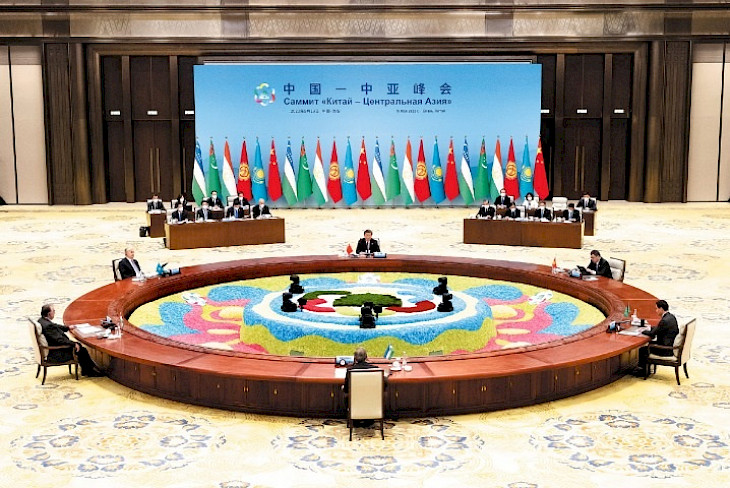China is steadily strengthening its role in the energy market of Central Asia, as confirmed both by international experts and by investment statistics. According to the International Energy Agency (IEA), more than 50% of new energy projects in the region over the past decade have been implemented with the participation of Chinese companies.
Oil market economist at Energy Intelligence Group, Julien Mathonniere, emphasizes that special attention is given to pipeline initiatives. In particular, the revival of the Turkmenistan–Uzbekistan–Tajikistan–Kyrgyzstan gas pipeline highlights Beijing’s growing influence in the energy policies of Central Asia and the Caspian region.
The expert also pointed to another regional trend — the increase in Russian gas supplies to Kyrgyzstan and Uzbekistan, which indicates long-term structural changes in these countries’ relations with their traditional partners, Russia and China. According to Gazprom, exports to Uzbekistan in 2024 exceeded 2.8 billion cubic meters, marking a record level in recent years.
China’s growing role in regional energy projects is creating a situation where Central Asian countries are becoming increasingly dependent on Chinese investments, technologies, and markets. Beijing not only builds infrastructure but also actively finances projects through the Asian Infrastructure Investment Bank and the Belt and Road Initiative.
For Europe, this means the loss of promising alternative routes for importing gas and oil from the region, raising vulnerability in times of energy crises, such as the reduction of supplies from Russia. According to the European Commission, the share of Caspian energy supplies in the EU’s import structure may decrease by 15–20% by 2030.
The United States, meanwhile, views China’s growing influence as a threat to its own efforts to promote a “green” energy transition, given that China already dominates the supply chains of rare earth metals and solar infrastructure.
Mathonniere underscores: China’s interest in pipeline projects is not only about economics, but also a tool of political influence. Such a strategy could shift the balance of power by redirecting energy flows from the Caspian region to Asian markets while limiting access for Western companies.
Thus, Central Asia is turning into a key energy hub where major geopolitical players — China, Russia, the U.S., and the EU — are competing for influence.
CentralasianLIGHT.org
October 3, 2025

